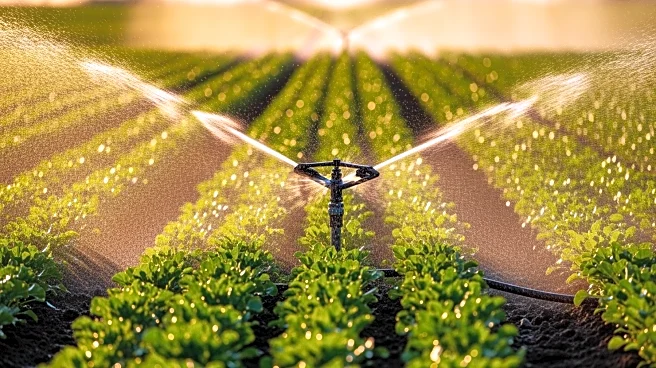What's Happening?
Iraq has significantly enhanced its agricultural productivity through the implementation of modern irrigation systems, according to Mahdi Sahar, Iraq's Deputy Minister of Agriculture. The ministry has verified
its readiness to deliver irrigation water to 3.5 million square kilometers of agricultural land using advanced technology. Contracts have been signed to provide 13,000 modern irrigation systems at a cost of 850 billion Iraqi dinars, approximately $650 million. These systems are progressively being delivered to farmers, either recommended by provincial agricultural directorates or those who applied directly to the ministry's initiative. The systems are designed to accommodate various land sizes, aiming to reduce water consumption by 50 to 60 percent while improving productivity. The output in areas irrigated with modern technologies has increased by 40 percent compared to conventional systems, providing a significant incentive for farmers.
Why It's Important?
The introduction of modern irrigation systems in Iraq is crucial for enhancing agricultural productivity, which is vital for the country's economy and food security. By increasing output by 40 percent, these systems offer a substantial boost to farmers, potentially leading to increased income and improved livelihoods. The reduction in water consumption is also significant, addressing environmental concerns and promoting sustainable agricultural practices. This development could serve as a model for other regions facing similar challenges, demonstrating the benefits of investing in advanced agricultural technologies. The financial commitment by the Iraqi government underscores the importance of agriculture in national development and the potential for technological solutions to drive economic growth.










